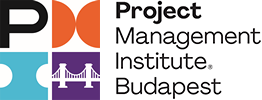February 17 2021 at 06:00AM
The leadership model in the context of transformation digital or not.
Most of the opinion articles that I read about digital transformation do not emphasize leadership's importance regardless of motivation, be it digital or organizational.
Of course, a strategy, plan, or technological means is necessary, but leadership is the decisive factor for success.
In the vast majority of plans, it is necessary to adapt to the circumstances, keep the teams motivated, manage ambiguities arising from the context, anticipate problems and trust in your team. You can't do anything alone. Everything is better when if you have your people, your team with you.
In this typical scenario that I believe to be a "deja vu", is leadership a decisive factor or not?
Analyzing a bit further:
Let's start with anticipation. However, detailing the plan or strategy requires taking care of unforeseen events and plan B and shaping the future. Create the conditions to have the "crystal ball" and predict what might go less well. We cannot just react, without due caution, because it typically has significant opportunity costs.
Adaptation is the only certainty that we will have with a plan, being adaptable in the management of superior decisions' ambiguity, feedback sometimes little from some stakeholders, or an incomplete diagnosis. In this paradigm to lead is to focus on the direction with commitments of changes to make it happen.
Changing is doing differently. We need commitment and relationships of trust with a sense of unique purpose for changes, but where we value those who think differently. A leader that encourages plurality will guarantee the best approach and commitment.
Motivating teams is the most important point so that in any transformational plan, all unexpected challenges, complex or laborious tasks are overcome. Energetic leadership will see each challenge as opportunities for improvement.
The specialization and demand for results make it absolutely unthinkable that a leader does not promote collaboration or internal or external partnerships, resorting to those who do well, creating value.
The dynamics of the market in the current global context implies that the speed of execution of a plan is decisive—the agility in the execution of tasks. Be quick and do well by promoting self-learning knowledge streams to achieve the purpose and change accordingly.
Leadership is thus, decisive. But it is important to "make no mistake" with a command and control approach that stops execution, without confidence in those who execute it, where the status quo prevails. Only the error is highlighted instead of work on solving the issue.
In the opposite direction, we must act, focusing on the future and not on past performance, promoting and fostering new ideas that drive change and exalt success.
Transformation is about changing. To lead in this paradigm is to be disruptive. It is promoting the right mindset to do things differently. It is to dynamize change and not to impose change.
To lead in this archetype is to be the future.
Note and Disclaimer: The author of this Blog post is Ivan Alves Moreira. He is the guest author of PMI.hu. The writing reflects the author's own professional opinion, findings, and conclusions, which do not necessarily agree with the position of PMI Budapest, Hungarian Chapter, and cannot be considered as an official recommendation, resolution, or opinion of PMI Budapest. The copyright and publication rights of the writing belong to the original author.



